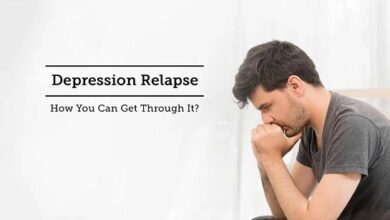What is Acute stress Symptoms causes Consequences and treatment
Acute stress
The demands that life imposes on us subject us to high levels of nervousness that remain over time. Although, in general, we have the resources to face this, the predominance of these moments tends to be decisive for many people. After all, how many times has someone started screaming and had no reason to justify that reaction? There are many similar examples, however, the central point is in controlling these attitudes. It is possible that you have identified yourself or know someone who has this type of feeling. In this article we will provide you the information about the Acute stress.
More about Acute stress
It is the type of response that a person has in the face of situations that produce discomfort , anguish and/or anger, among others. For this reason, this pathology produces different symptoms that can affect both your social and intimate life. In this sense, it should be noted that this is a pattern that repeats itself with a certain frequency over time.
According to the DSM-5 , it is possible to fit the episode of it within the acute stress disorder based on the delimitations provided by the classification. Next, we will show the main diagnostic criteria :
- Distressing memories of a stressful event.
- Traumatic dreams related to the episode.
- Alteration of social, professional and family life due to the symptoms involved.
- Duration between 3 days and a month.
- Manifestations cannot be explained from substance ingestion and/or some other type of mental disorder.
Symptoms of an Acute Stress Episode
In order to understand this problem more precisely and to establish a diagnosis, it is important to know the manifestations that can occur. In the topics below, we will address the symptoms of an episode of it :
- Irritability
- Hypervigilance
- sleep changes
- Anguish
- body aches
- Headaches
- Dizziness
- nausea
- Vertigo
Despite the symptoms mentioned, it should be noted that the presence of any of them does not necessarily represent a picture of acute stress. For this reason, before suspecting that you suffer from this disorder, it is important to go to a health center to confirm the diagnosis by a specialist.
causes of acute stress
How can we treat acute stress? Finding the origin of the acute stress episode is essential to establish possible approach strategies and the most appropriate treatment for each patient. Next, we will explain the main causes of it:
environmental factors
Life experiences directly influence people’s feelings, actions and thoughts on a daily basis. Among the most well-known reasons are social pressures, family mistreatment, romantic disappointments, among others.
organic factors
On the other hand, genetics is another factor that can play an important role in the onset of acute stress. In general terms, there are neural components that are linked to the informational processing that comes from external stimuli. These connections produce different emotional responses that are linked to the aforementioned symptoms.
Consequences of acute stress
This pathology has some effects that directly indicate that the person suffers from this disorder. The main consequences of it are:
- Physical aspects : the persistence of symptoms brings with it physical difficulties that may appear through health complications.
- Psychological aspects : the person may have a tendency to isolate themselves from the social cycles they were previously part of. In addition, other mental disorders may also arise from this condition.
Acute stress treatment
How to heal from acute stress? Nowadays, there are several treatments to improve the symptoms of an episode of acute stress and, consequently, the quality of life of people who suffer from this disorder. Taking this into account, we will present the treatments for acute stress:
psychological therapy
It consists of a space that offers emotional support and tools to face stressful situations . In global terms, greater importance is placed on different strategies to face everyday life in a lighter way based on the characteristics of each person. Among the most accepted psychological therapies are psychoanalysis and cognitive behavioral therapy.
psychiatric medication
On the other hand, psychotropic drugs may be another option when the complexities of the clinical picture affect the person’s daily life. However, psychiatric medication should always be administered under the supervision of a mental health professional .




